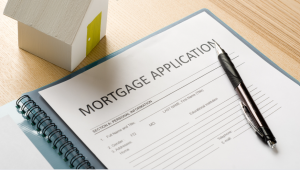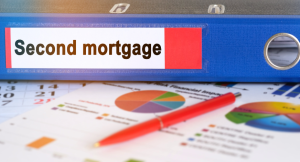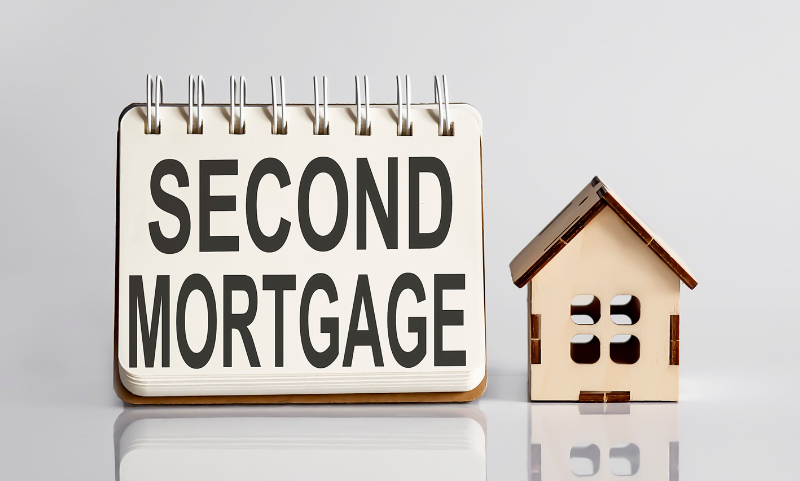If you are a homeowner, you may have heard of second mortgages, but do you really know what they are? A second mortgage is a secured loan that allows homeowners to borrow against the equity in their homes. It can be a useful tool for those who need access to cash or want to consolidate debt.
However, before taking out a second mortgage, it’s important to understand how they work and what the risks are. In this blog post, we will cover everything you need to know about second mortgages in the UK. From the basics of what they are and how they work to the process of applying for one and the benefits and risks involved. We’ll also compare second-charge mortgages with remortgaging and discuss alternatives that may be more suitable for your situation. So if you’re considering a second mortgage, keep reading to learn more!
What is a Second Mortgage?

A second mortgage is a type of loan that allows homeowners to borrow against the equity they have in their property. Unlike a primary mortgage used to purchase a home, a second mortgage is taken out after the first mortgage has been established. This additional loan can be used for various purposes, such as home improvements, debt consolidation, or other financial needs.
The same property secures the second mortgage as the first mortgage and is subordinate to it in terms of repayment priority. This means that if the homeowner defaults on their loans and the property is sold, the proceeds from the sale would first go towards paying off the primary mortgage before being applied to the second mortgage.
Basics of Second Mortgage

A second mortgage is a loan that is secured against your property in addition to your first mortgage. This means that if you default on the loan, the lender can repossess your home and sell it to repay the debt.
Second mortgages are typically taken out for a shorter term than first mortgages and have higher interest rates. They can be used for a variety of purposes, including home improvements, consolidating debts, or raising money for a large purchase.
Before taking out a second mortgage, it is important to understand the risks involved. Defaulting on the loan could result in losing your home, so make sure you can afford the monthly repayments. It is also worth shopping around to compare different deals and find the best interest rate for you.
How Does a Second Mortgage Work in the UK?

A second mortgage works by allowing homeowners in the UK to borrow against the equity they have built up in their property. This type of loan is secured against the value of the property, just like a primary mortgage. However, unlike a primary mortgage, a second mortgage is taken out on top of an existing mortgage.
The borrower can use the funds from a second mortgage for various purposes, such as home improvements, debt consolidation, or funding large expenses. The amount that can be borrowed and the interest rate will depend on factors such as the value of the property and the borrower’s creditworthiness. It is important to carefully consider the terms and conditions of a second mortgage before proceeding, as defaulting on payments could result in foreclosure and potential loss of the property.
The Process of Applying for a Second Mortgage

When you’re ready to apply for a second mortgage, you’ll need to start by contacting a lender. You can work with your current mortgage lender or choose a new one. Be sure to compare rates and terms before you commit to a loan.
Once you’ve chosen a lender, you’ll need to complete a loan application and provide supporting documentation. The application will ask for information about your employment, income, debts, and assets. You may also need to provide tax returns, pay stubs, and bank statements.
After the application is complete, the lender will order a property appraisal to determine the value of your home. They will also pull your credit report and verify your employment and income. Once all of this information has been reviewed, the lender will make a decision on whether or not to approve your loan.
If approved, you’ll then sign loan documents and agree to the terms of the loan. Once everything is finalized, the funds will be disbursed, and you can begin making payments on your second mortgage.
Why Consider a Second Mortgage?

There are several reasons why someone might consider a second mortgage. One common reason is to access the equity in their home for major expenses such as home renovations, debt consolidation, or funding education. A second mortgage can provide a lump sum of cash that can be used for these purposes, allowing homeowners to tap into the value of their property without having to sell it.
A second mortgage can also be used to take advantage of lower interest rates or consolidate higher-interest debt into a single, more manageable payment. It’s important to carefully consider the terms and conditions of a second mortgage before proceeding, as it is a significant financial commitment. Consulting with a financial advisor or mortgage specialist can help individuals determine if a second mortgage is the right option for their specific needs and circumstances.
How to Get a Second Mortgage in the UK?

Getting a second mortgage in the UK can be a viable option for homeowners who need additional funds for various purposes such as home renovations, debt consolidation, or other financial needs. Here are some steps to help you navigate the process of obtaining a second mortgage:
- Assess your financial situation: Before applying for a second mortgage, evaluating your current financial standing is crucial. Consider factors such as your income, credit score, existing mortgage balance, and any outstanding debts.
- Research lenders: Take the time to research different lenders and compare their offerings. Look at factors such as interest rates, repayment terms, fees, and customer reviews to find the best fit for your needs.
- Gather necessary documents: Lenders will typically require documentation such as proof of income, bank statements, tax returns, and details about your existing mortgage. Make sure to gather these documents in advance to streamline the application process.
- Determine how much you can borrow: Lenders will assess your financial situation to determine how much they are willing to lend you. Factors such as your income, credit history, and property value will influence this decision.
- Apply for the second mortgage: Once you have chosen a lender and gathered all the necessary documents, it’s time to submit your application. Be prepared for a thorough review of your finances and property before receiving approval.
- Complete the legal process: If your application is approved, you will need to go through the legal process of finalizing the second mortgage agreement. This may involve working with solicitors or conveyancers to meet all legal requirements.
Borrowing Limit for a Second Mortgage

When considering a second mortgage in the UK, it’s important to understand the borrowing limit and the loan-to-value (LTV) ratio. Typically, lenders will allow borrowers to borrow between 80-85% of their home equity. For example, if you have £150,000 of home equity after years of mortgage repayments, a second charge mortgage with an 80% LTV would allow you to borrow a maximum of £120,000.
It’s worth noting that the exact borrowing limit may vary depending on individual circumstances and lender requirements. Therefore, it’s always recommended to consult with a financial advisor or mortgage broker to determine the specific borrowing limit for your situation.
Benefits of Acquiring a Second Mortgage

Acquiring a second mortgage in the UK can offer a range of benefits for homeowners.
One of the main advantages is the ability to access additional funds, which can be used for various purposes such as home improvements, debt consolidation, or funding education expenses.
A second mortgage also allows homeowners to take advantage of potentially lower interest rates compared to other types of borrowing, such as personal loans or credit cards.
Additionally, the interest paid on a second mortgage may be tax-deductible, providing potential financial savings for borrowers. It’s important to note that taking out a second mortgage does come with certain risks and considerations, so it’s crucial to carefully evaluate your financial situation and consult with a professional before making any decisions.
What is the Role of the FCA in Regulating Second Mortgages?

The Financial Conduct Authority (FCA) plays a crucial role in regulating second mortgages in the UK. As the regulatory body responsible for overseeing financial markets and ensuring consumer protection, the FCA sets out rules and guidelines that lenders must adhere to when offering second mortgages.
This includes requirements for responsible lending practices, transparency in advertising and disclosure of fees, and fair treatment of consumers. By regulating second mortgages, the FCA aims to protect consumers from unscrupulous lending practices and promote a competitive and transparent market for these types of loans.
Second Charge Mortgage Vs Remortgaging: Which is Better?

When it comes to deciding between a second-charge mortgage and a remortgage, there is no one-size-fits-all answer. The choice between the two will depend on your individual financial situation and goals. A second-charge mortgage, also known as a secured loan, allows you to borrow against the equity in your property while keeping your existing mortgage intact.
This can be a good option if you have a low-interest rate on your current mortgage or if you want to avoid paying early repayment charges. On the other hand, remortgage involves replacing your existing mortgage with a new one, often with better terms or a lower interest rate. This can be beneficial if you want to consolidate debt, access additional funds, or take advantage of lower interest rates in the market.
Ultimately, it is important to carefully consider your options and consult a financial advisor to determine which option best suits your needs.
How Difficult is it to Get a Second Mortgage?

Getting a second mortgage in the UK can be a bit challenging. Lenders are generally more cautious when it comes to approving second mortgages because they take on additional risk. They will carefully assess your financial situation, including your income, credit history, and existing mortgage, to determine if you qualify for a second mortgage.
It is important to have a good credit score and a stable income to increase your chances of approval. Also, lenders may require you to have a certain amount of equity in your property before considering approving a second mortgage.
Shopping around and comparing different lenders is advisable to find the best terms and rates for your second mortgage.
Risks Involved in Second Mortgages

When considering a second mortgage in the UK, it is important to be aware of the potential risks involved. One of the main risks is that if you are unable to make the loan payments, your home could be at risk of repossession. With a second mortgage, you add additional debt and increase your monthly financial obligations. It is crucial to carefully assess your ability to make timely payments and consider any potential changes in your financial situation that could impact your ability to repay the loan.
Additionally, interest rates on second mortgages can sometimes be higher than those on first mortgages, which can increase the overall cost of borrowing. It is important to thoroughly research and compare different lenders and loan options to ensure you get the best terms for your second mortgage. Consulting with a financial advisor or mortgage specialist can also provide valuable guidance in understanding and mitigating the risks associated with second mortgages in the UK.
Conclusion
In conclusion, getting a second mortgage in the UK can be a viable option for homeowners who need access to additional funds. It provides a way to tap into the equity built in your home and use it for various purposes such as home improvements, debt consolidation, or funding major life events. However, it is important to consider the risks and drawbacks of a second mortgage carefully and explore alternative options such as remortgage or personal loans. Consulting with a reputable mortgage advisor can help you navigate the process and make an informed decision based on your circumstances. Remember, responsible borrowing and thorough research are key when considering a second mortgage.









